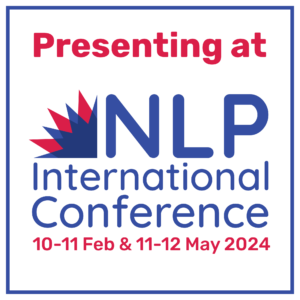How NLP Goal Coaching Can Change Your Life
In this blog, I will explain three parts of an NLP goal coaching process which I will be covering in full during our free lunchtime zoom session on 9th Feb.
Coaching is often taught as a process consisting of a list of different types of questions. Behind these questions are important principles to ascertain if a goal has ‘legs’. Although a ‘managerial’ approach of specific steps with deadlines can be helpful, usually it is the delving into more subtle issues that really make a difference.
The NLP goal coaching process is called the Well-Formed Outcome.
The idea is that a goal needs to be ‘well-formed’ to stand a good chance of working. I will give some examples of how these principles apply to wealth, health and relationship goals.
- Expressed positively. I don’t want to be poor, sick or lonely seem reasonable enough goals, however by expressing them in the negative sadly builds a mental image of the thing we are trying to avoid. Switching them to a positive image motivates your mind to move towards those goals. Therefore, imagine something like savings of x on your bank statement. Seeing a healthier you in a mirror after finishing your regular exercising when you ate sensibly for the previous 5 days. Imagine enjoying yourself on a date with a potential new partner (or your existing one).
- Self-initiated. A goal that is dependent on someone else’s involvement / approval or external circumstances is problematic. A goal that puts you in the ‘driver’s seat’ has far more chance of success. It makes you responsible for the goal, so you don’t play the ‘blame game’. Once you work out a strategy to deal with other people’s objections (which may require some negotiation) you open up your freedom and power. Even with the pandemic, some goals may not be practical to achievable right now, but that doesn’t stop you making good progress or finding alternatives. There is nothing to stop you at least initiating some of these goals.
- Protecting yourself. Creating wealth, health and relationship(s) involves risk and requires discipline. If you don’t achieve them, you may feel guilty too – so why bother? You may believe that business is inhabited by dodgy people; dating will break your heart (again) and you can’t put yourself through another failed diet – you are not alone! Learning how to help transform these blocks is where professional coaching really adds value. For instance:
Wealth: A client realised that he had a belief from his father, “Rich people have unhappy families.” By asking if he knew any rich people with happy families, (he said he did) he was able to understand what was holding him back and has since built a successful business. Challenging generalised beliefs in this way is part of an NLP approach called The Meta Model.
Health: A client who realised that to gain a ‘movie star’ physique would require a level of effort that would be completely impractical to him. From the psychology of Transactional Analysis, I sensed a ‘Be Perfect’ quality in him and asked if he didn’t want to become a ‘10’, what would be a reasonable level? He responded a 6 and paused; he then said he had a realisation that he was an ‘all or nothing’ kind of person. I asked what impact that was having on his health and vitality. He admitted that it wasn’t a sustainable approach and realised that his search for perfection was leading him to damage his health. This provided sufficient motivation to create a healthier lifestyle and he suggested that two ‘cheat days’ a week would make this work for him.
He said after a few weeks that the boost to his energy and wellbeing was the real benefit and he has stuck to it ever since
Relationships: A client discovered that the reason he was not initiating a new relationship was that he didn’t want to feel the pain and disappointment of break up again. Using a principle from psychologist Harville Hendrix, I described how we all search for a ‘perfect love’ we didn’t get during our childhoods. We unrealistically expect our partner to provide that love, yet they never live up to our expectations (and we don’t live up to theirs’s either). I suggested a new belief that we can provide ourselves with that ‘missing love’ and are then free to search out a new partner (or improve an existing relationship) but in a sustainable way. The client said he no longer felt stuck anymore and has started dating.
There is also a reality check to all this: often these hidden beliefs are just that – hidden – the prospect of doing something different simply feels bad, and we don’t know why. NLP goal coaching can open up these hidden parts of us and allow new more productive ideas to be put in their place.
When clients discover and resolve these unconscious blocks and beliefs, the results can literally be life changing. I believe this is the most powerful and effective part of coaching and I have seen it work. I hope you can join next Tuesday’s FREE NLP goal coaching lunchtime session and see for yourself these approaches in action.
Did you like this post?
Then check out our events and courses!
Register for the FREE NLP goals coaching session with Robbie
Sign up to our new e-learning!









